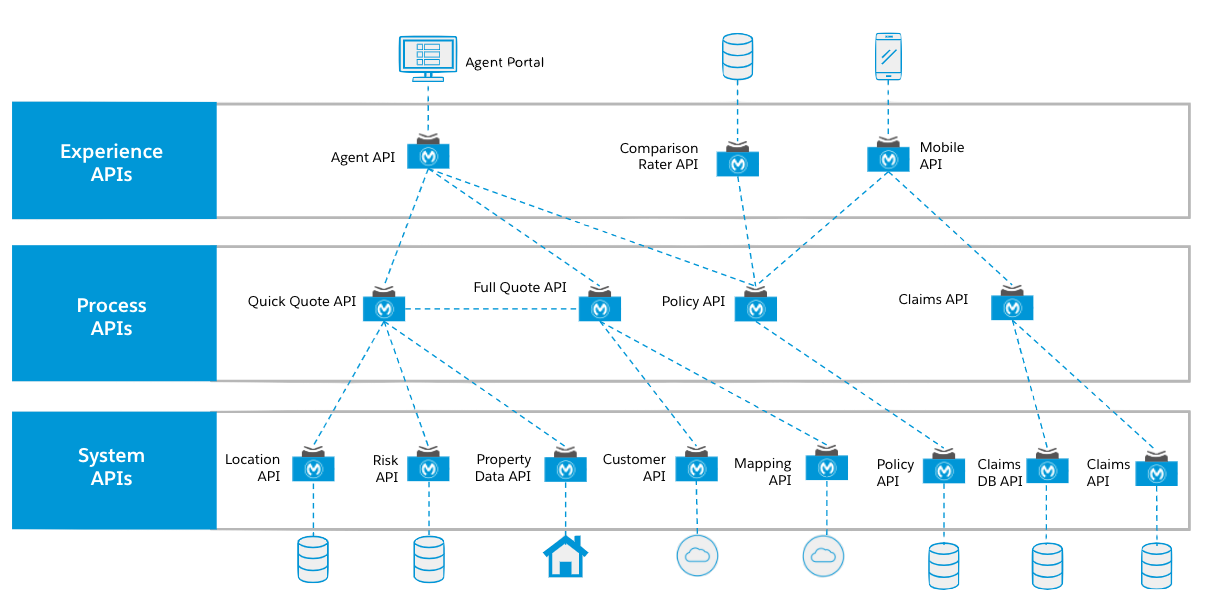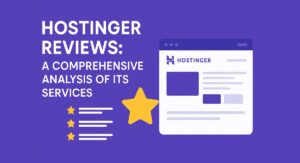In today’s digital age, businesses need efficient and scalable solutions. Mulesoft’s Anypoint Platform is a leading choice for large enterprises.
Mulesoft’s Anypoint Platform offers a robust solution for API and integration needs. It helps businesses connect applications, data, and devices seamlessly. This platform is designed to handle the complex requirements of large enterprises. With its scalable architecture, it grows with your business demands.
It simplifies integration, making processes smoother and faster. Companies can innovate without worrying about integration challenges. By using Mulesoft, enterprises can focus on growth and efficiency. Dive in to learn how Mulesoft’s Anypoint Platform can benefit your organization. Discover its features, advantages, and why it’s a top choice for many large businesses.
Introduction To Mulesoft
Mulesoft’s Anypoint Platform is a unified, scalable API and integration platform. It enables large enterprises to connect apps, data, and devices. The platform facilitates seamless integration, making business processes more efficient.
What Is Mulesoft?
Mulesoft is a software company that provides integration solutions. The Anypoint Platform is its flagship product. It allows companies to integrate various systems and services. These integrations can be on-premises or in the cloud.
The platform offers tools for designing, building, and managing APIs. It simplifies the connection between different technologies. This makes it easier to share data and automate workflows.
Importance For Large Enterprises
Large enterprises often use multiple systems and applications. Integrating these can be challenging. Mulesoft’s Anypoint Platform helps overcome these challenges. It ensures smooth data flow between systems.
Using the platform, businesses can improve efficiency. They can also enhance customer experiences by providing timely information. The platform supports scalability, making it ideal for growing companies.
Security is another key feature. Mulesoft ensures that data transfers are secure. This is crucial for enterprises dealing with sensitive information.
Anypoint Platform Overview
Mulesoft’s Anypoint Platform is a scalable API and integration solution for large enterprises. It empowers organizations to connect applications, data, and devices with ease. The platform ensures seamless communication and data exchange across diverse systems.
Core Components
The Anypoint Platform comprises several core components that work together. These components streamline the integration process and enhance operational efficiency.
- Anypoint Studio: A powerful IDE for designing, building, and deploying integrations.
- Anypoint Exchange: A central repository for APIs, templates, and connectors.
- Anypoint Management Center: A comprehensive tool for managing and monitoring APIs and integrations.
- Anypoint Connectors: Pre-built connectors for various applications and databases.
Key Features
The Anypoint Platform offers numerous features that cater to the diverse needs of large enterprises. These features ensure efficient integration and API management.
| Feature | Description |
|---|---|
| API Designer | A graphical interface for designing APIs with ease. |
| API Manager | Tools for managing, monitoring, and securing APIs. |
| CloudHub | A platform for deploying and managing integrations in the cloud. |
| DataWeave | A powerful data transformation language. |
The Anypoint Platform’s scalability and robustness make it a preferred choice for large enterprises. Its modular approach simplifies complex integration scenarios and ensures seamless operations.
Api-led Connectivity Approach
The API-led connectivity approach is a method for integrating applications. It uses APIs to connect data and applications. This approach helps large enterprises create reusable and scalable solutions. It also improves agility and speed in digital transformations.
Design Principles
The design principles of API-led connectivity are crucial. First, APIs are designed for specific purposes. Each API has a clear role. Second, APIs are reusable. This saves time and effort. Third, APIs are built with security in mind. This ensures data protection. Fourth, APIs are designed for easy management. This helps in monitoring and troubleshooting.
Benefits Of Api-led Connectivity
API-led connectivity offers many benefits. First, it increases agility. Teams can work faster and more efficiently. Second, it improves scalability. Enterprises can handle more data and users. Third, it enhances flexibility. Businesses can quickly adapt to changes. Fourth, it ensures better security. Sensitive data is protected through APIs.
Another benefit is cost efficiency. Reusable APIs reduce development costs. This approach also promotes innovation. Teams can experiment and implement new ideas easily. Overall, API-led connectivity is a powerful method for large enterprises.
Scalability For Large Enterprises
Scalability for Large Enterprises is a critical feature for any integration platform. Mulesoft’s Anypoint Platform excels in this area. Large enterprises need robust solutions to handle vast amounts of data and transactions. Mulesoft ensures that the integration processes are seamless. It supports high-volume data transfers, ensuring business operations run smoothly.
Handling High Volume
Large enterprises deal with huge amounts of data daily. Mulesoft’s Anypoint Platform is designed to handle this. It can manage high volumes of API requests without slowing down. The platform scales horizontally. This means it can add more servers to balance the load. This helps in processing large datasets efficiently.
Mulesoft also offers load balancing features. This ensures that no single server gets overwhelmed. Data is distributed evenly across multiple servers. This improves performance and reliability. Additionally, the platform supports asynchronous processing. This allows multiple tasks to run at the same time, reducing wait times.
Performance Optimization
Performance is crucial for large enterprises. Mulesoft provides tools to optimize API performance. One such tool is API Manager. This tool helps in monitoring API traffic and identifying bottlenecks. It provides insights into API usage patterns. These insights help in making informed decisions to improve performance.
Mulesoft also supports caching mechanisms. Caching reduces the load on servers by storing frequently accessed data. This speeds up data retrieval times. Another feature is circuit breaker patterns. These patterns prevent system overload by limiting the number of requests during high traffic. This ensures that the system remains stable and responsive.
Here is a table summarizing the key features for handling high volume and performance optimization:
| Feature | Description |
|---|---|
| Horizontal Scaling | Adds more servers to balance the load. |
| Load Balancing | Distributes data evenly across servers. |
| Asynchronous Processing | Allows multiple tasks to run simultaneously. |
| API Manager | Monitors API traffic and identifies bottlenecks. |
| Caching Mechanisms | Stores frequently accessed data for quick retrieval. |
| Circuit Breaker Patterns | Limits requests during high traffic to prevent overload. |
Integration Capabilities
The integration capabilities of Mulesoft’s Anypoint Platform empower large enterprises to streamline their operations. These capabilities allow seamless communication between various systems and applications. This ensures data consistency and operational efficiency across the organization.
Connecting Various Systems
Mulesoft’s Anypoint Platform excels in connecting various systems within an enterprise. It supports a wide range of connectors for different applications and databases. This enables businesses to integrate CRM, ERP, and other essential systems effortlessly.
By leveraging these connectors, organizations can:
- Ensure real-time data synchronization
- Improve process efficiency
- Reduce manual data entry
Integration is simplified with pre-built connectors for popular systems like:
| System | Connector Availability |
|---|---|
| Salesforce | Available |
| Oracle | Available |
| SAP | Available |
Cloud And On-premise Integration
The Anypoint Platform supports both cloud and on-premise integration. This flexibility is crucial for enterprises with diverse infrastructure needs. Organizations can connect cloud-based applications with on-premise systems seamlessly.
This dual capability provides several benefits:
- Enhanced scalability
- Improved data security
- Cost-effective integration
With hybrid deployment options, businesses can:
- Maintain control over sensitive data
- Leverage cloud resources for non-sensitive operations
- Ensure compliance with regulatory requirements
Adapting to both environments helps businesses stay competitive. It also ensures they meet the evolving demands of their industry.
Security And Compliance
Ensuring security and compliance is crucial for any large enterprise. Mulesoft’s Anypoint Platform offers robust features to address these needs. This ensures data protection and adherence to regulatory standards.
Data Protection
Data protection is at the heart of Mulesoft’s Anypoint Platform. It uses advanced encryption protocols to safeguard sensitive information. This ensures that data remains secure both in transit and at rest.
The platform also offers role-based access control. This helps in managing who can access what data. This minimizes the risk of unauthorized access.
| Feature | Benefit |
|---|---|
| Encryption | Protects data during transit and at rest. |
| Role-based Access Control | Limits access to sensitive information. |
| Audit Logs | Tracks all access and changes to data. |
Regulatory Compliance
Large enterprises must follow strict regulatory guidelines. Mulesoft’s Anypoint Platform helps meet these requirements. It supports various compliance standards like GDPR, HIPAA, and PCI-DSS.
The platform provides built-in compliance features. These include:
- Data anonymization
- Automated compliance reporting
- Secure data storage solutions
These features ensure that your organization stays compliant. This reduces the risk of costly fines and legal issues.
Adopting Mulesoft’s Anypoint Platform ensures your enterprise can operate securely and compliantly. This boosts customer trust and protects your brand reputation.
Case Studies
Mulesoft’s Anypoint Platform has become a go-to solution for large enterprises. This scalable API and integration platform connects systems, applications, and data. Let’s explore some real-world case studies to understand its impact.
Success Stories
Many companies have benefited from Mulesoft’s Anypoint Platform. One notable example is Spotify. Spotify used Anypoint Platform to streamline its data integration. This improved the user experience significantly.
Another success story is Unilever. Unilever leveraged Anypoint Platform for seamless integration across various systems. This resulted in better supply chain management and faster time-to-market.
Lessons Learned
From these success stories, valuable lessons emerge. Firstly, scalability is critical. Large enterprises require platforms that grow with their needs. Anypoint Platform offers this scalability.
Secondly, ease of use matters. Companies like Spotify and Unilever found the platform user-friendly. This reduces the learning curve and speeds up implementation.
Lastly, flexibility is key. Anypoint Platform’s flexibility allows for diverse use cases. Businesses can adapt it to their specific needs.

Credit: latenode.com
Future Of Mulesoft
The future of Mulesoft is bright and promising. As large enterprises strive for seamless integration, Mulesoft’s Anypoint Platform provides the scalability and flexibility needed. This platform is evolving to meet the growing demands of the tech world.
Upcoming Features
Mulesoft is planning to introduce several new features that will enhance its capabilities:
- Enhanced Security: Improved security protocols to protect sensitive data.
- AI Integration: Leveraging AI to optimize API performance.
- Advanced Analytics: Better insights through more detailed analytics.
- Improved User Interface: A more intuitive and user-friendly interface.
These features will help businesses streamline their operations and improve efficiency.
Industry Trends
The tech industry is rapidly evolving, and Mulesoft is keeping pace with these changes. Here are some key trends:
- API Economy: APIs are becoming the backbone of digital transformation.
- Cloud Adoption: More businesses are moving to cloud-based solutions.
- Microservices Architecture: Breaking down applications into smaller, manageable services.
By aligning with these trends, Mulesoft ensures it remains a relevant and valuable tool for large enterprises.
The future of Mulesoft is not just about adding new features. It’s also about adapting to the changing landscape of technology and business needs.
Getting Started With Mulesoft
Getting started with Mulesoft’s Anypoint Platform can be simple and rewarding. This scalable API and integration platform is perfect for large enterprises. It helps streamline processes, boost productivity, and ensure seamless connectivity. Here, we will guide you through the initial setup and best practices for Mulesoft.
Initial Setup
Begin by signing up on the Mulesoft Anypoint Platform. Once registered, you can access the Anypoint Studio. This integrated development environment (IDE) lets you design, build, and manage APIs and integrations. Download and install Anypoint Studio on your system.
Next, configure your workspace. Choose a location on your computer to save projects. Open Anypoint Studio and follow the setup wizard. This will guide you through the initial configuration. Ensure your system meets the required specifications. This will help avoid any potential issues.
After setting up Anypoint Studio, connect to the Anypoint Platform. Use your credentials to log in. This connection allows you to manage your APIs and integrations. You can also monitor and deploy them directly from the platform.
Best Practices
Following best practices ensures smooth operations. Start with a clear plan. Define your API and integration requirements. Document each step and involve all stakeholders. This will help avoid miscommunication and errors.
Organize your projects efficiently. Use folders and naming conventions. This makes it easier to locate and manage assets. Also, follow standard coding practices. Write clean and readable code. Use comments to explain complex logic.
Testing is crucial. Test your APIs and integrations thoroughly. Use MUnit for unit testing. This helps identify and fix issues early. Regularly update and maintain your projects. Keep track of new features and updates from Mulesoft.
Security is important. Implement security best practices. Use encryption, authentication, and authorization. Monitor your APIs and integrations. Use Anypoint Monitoring for real-time insights. This helps you identify and resolve issues quickly.

Credit: vizologi.com

Credit: blogs.mulesoft.com
Frequently Asked Questions
What Is Mulesoft Anypoint Platform?
Mulesoft Anypoint Platform is a scalable API and integration solution. It helps large enterprises connect applications, data, and devices seamlessly.
How Does Mulesoft Benefit Large Enterprises?
Mulesoft offers robust API management and integration capabilities. It enhances business agility and streamlines operations across various systems.
Can Mulesoft Integrate With Existing Systems?
Yes, Mulesoft can integrate with various existing systems. It supports numerous protocols and technologies for seamless connectivity.
Is Mulesoft Suitable For Cloud Integration?
Mulesoft is ideal for cloud integration. It supports hybrid cloud environments, ensuring smooth transitions and efficient data management.
Conclusion
Mulesoft’s Anypoint Platform is ideal for large enterprises. It offers scalable API and integration solutions. Businesses can streamline operations and boost efficiency. The platform simplifies connecting various systems and applications. This helps in enhancing productivity and reducing costs. User-friendly features make it accessible for all team members.
Investing in Mulesoft can lead to significant improvements. Consider Mulesoft’s Anypoint Platform for your enterprise needs. It is a smart choice for growth and innovation.
{ “@context”: “https://schema.org”, “@type”: “FAQPage”, “mainEntity”: [ { “@type”: “Question”, “name”: “What is Mulesoft Anypoint Platform?”, “acceptedAnswer”: { “@type”: “Answer”, “text”: “Mulesoft Anypoint Platform is a scalable API and integration solution. It helps large enterprises connect applications, data, and devices seamlessly.” } } , { “@type”: “Question”, “name”: “How does Mulesoft benefit large enterprises?”, “acceptedAnswer”: { “@type”: “Answer”, “text”: “Mulesoft offers robust API management and integration capabilities. It enhances business agility and streamlines operations across various systems.” } } , { “@type”: “Question”, “name”: “Can Mulesoft integrate with existing systems?”, “acceptedAnswer”: { “@type”: “Answer”, “text”: “Yes, Mulesoft can integrate with various existing systems. It supports numerous protocols and technologies for seamless connectivity.” } } , { “@type”: “Question”, “name”: “Is Mulesoft suitable for cloud integration?”, “acceptedAnswer”: { “@type”: “Answer”, “text”: “Mulesoft is ideal for cloud integration. It supports hybrid cloud environments, ensuring smooth transitions and efficient data management.” } } ] }




